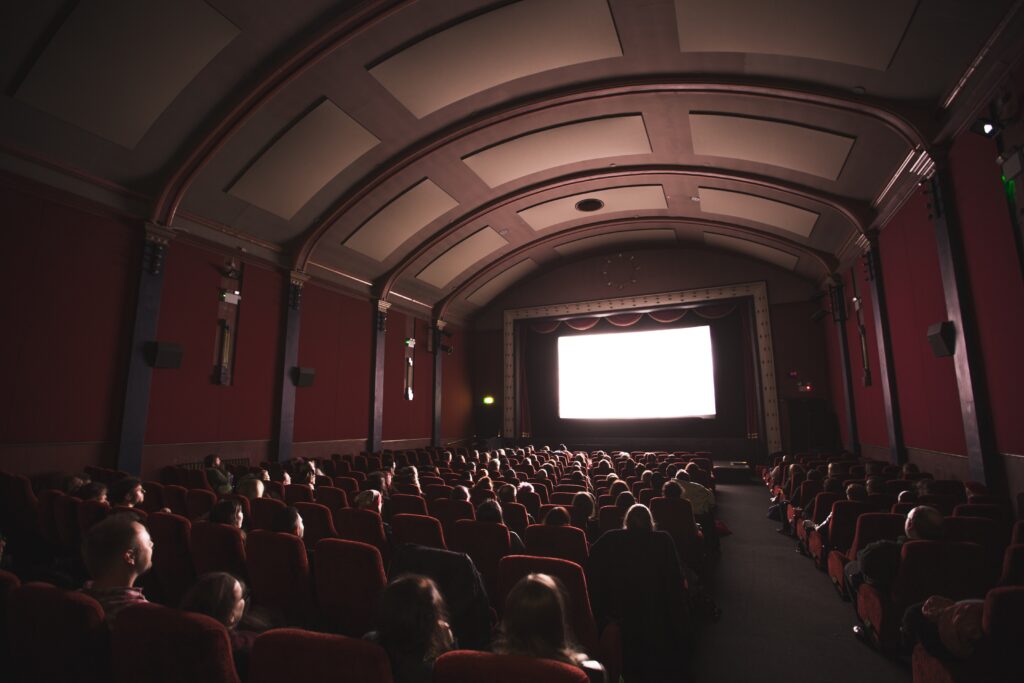7Aug
Bringing the Little Ones to the Big Screen
We have noticed quite a few posts on social media regarding the new Barbie movie not being for children, and it got us thinking – are toddlers allowed into cinemas?
The magical allure of the big screen, the scent of popcorn wafting through the air, and the anticipation of a thrilling cinematic experience create cherished memories for many of us. However, as parents and caregivers, the question of whether toddlers are allowed in cinemas often looms large. Is the movie theatre a family-friendly destination for little ones, or should it remain a domain exclusively for older audiences? Let’s explore the considerations, benefits, and potential challenges of bringing toddlers to the cinema.

The Age-Appropriate Dilemma:
One of the primary concerns when considering bringing toddlers to the cinema is whether the content is suitable for their young minds. Movies typically have age ratings that help guide parents in determining the appropriateness of the content. It is essential for parents to carefully review movie ratings and plot summaries to ensure the film aligns with their child’s developmental stage and sensitivity to certain themes.
Benefits of Experiencing Cinema at a Young Age:
Bringing toddlers to the cinema can offer several benefits beyond entertainment. The immersive experience of a movie theatre can captivate their senses, stimulate curiosity, and enhance their cognitive development. For many young children, it may be their first exposure to storytelling on a grand scale, sparking their imagination and creativity. Additionally, shared cinematic experiences can be a bonding opportunity for families, fostering cherished memories that last a lifetime.
Selecting the Right Time and Movie:
Choosing an appropriate time for a cinema outing with toddlers is crucial for a positive experience. Opt for matinee or early afternoon screenings when theatres are less crowded and noise levels are lower. Shorter films or those with child-friendly themes, such as animated movies, are likely to hold their attention better. Some theatres even offer special screenings designed specifically for parents and young children, creating a more accommodating environment.
Noise and Disruptions:
While introducing toddlers to the cinema can be rewarding, it is essential to be considerate of other audience members. Young children may not always adhere to the expectations of sitting quietly throughout the entire movie. They may become fidgety, vocalise their thoughts, or need to take bathroom breaks. Parents should be prepared to handle such situations discreetly, step out if necessary, or opt for designated family-friendly screenings where these occurrences are more expected.
Ear Protection and Comfort:
The cinema experience can be overwhelming for some toddlers, given the loud sound effects and darkness of the theatre. Consider bringing noise-cancelling headphones or earplugs to protect sensitive ears. Additionally, ensure they are comfortable with the seating arrangements, as toddlers may become restless if they are not at ease.
Preparation and Familiarisation:
Before heading to the cinema, parents can prepare toddlers for the experience by discussing what to expect. Explain that they will be watching a big movie on a huge screen with surround sound and emphasise the excitement of the event. Familiarising toddlers with the concept of sitting quietly and attentively for a short period can set the stage for a more enjoyable outing.
Snack and Drink Considerations:
While many cinemas offer a tempting array of snacks and drinks, parents should be mindful of the choices they make for toddlers. Sugary treats and caffeine-laden drinks may lead to increased restlessness or hyperactivity. Instead, opt for healthier snack alternatives, such as fruit, biscuits, or water. Having a small snack during the movie can also help keep little ones engaged and occupied.
Teaching Movie Theatre Etiquette:
A visit to the cinema can serve as a valuable opportunity to teach toddlers about proper movie theatre etiquette. Discuss the importance of speaking softly, staying seated during the film, and respecting others’ viewing experience. Reinforcing these concepts before and during the outing can help toddlers understand the expectations of behaviour in a public setting.

Knowing When to Postpone:
While the cinema can be a captivating experience, it’s crucial for parents to recognise when their child may not be ready for such an outing. If a toddler is unwell, tired, or in the midst of a developmental phase that requires extra attention, it may be best to postpone the cinema visit to a more suitable time.
The decision of whether to bring toddlers to the cinema is a personal one, with factors like movie content, age appropriateness, and individual child temperament playing a significant role. While the cinema can be an enriching experience for young children, it is essential to consider their needs, the comfort of other patrons, and the suitability of the movie. Ultimately, a thoughtful approach and informed decision-making can lead to delightful cinematic outings for families and the creation of beautiful memories that will be cherished for years to come.
